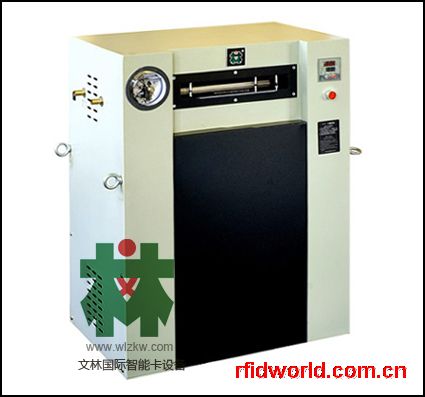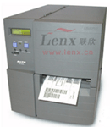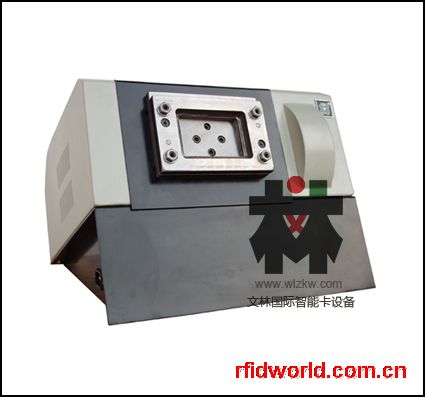Savi Technology获得北约新的RFID物流网络升级合同
作者:Savi Technology
日期:2007-03-04 11:42:52
摘要:北约的咨询、指挥及控制局(NC3A)授于Savi Technology新的RFID物流网络升级及维护合同。这个基于RFID的物流配送网络是Savi Technology去年建立的,主要用于在欧洲与阿富汗间追踪成员国的国防物资流动。这份新合同还包括向Savi Technology采购新RFID有源标签,读写器及对阿富汗国际安全救援部队(ISAF)供应链的软件升级。网络升级部分还将加入刚推出的Savi SmartChain 货物运送管理方案,Savi读写器SR-650还将会被用于ISAF网络的一些主要交通节点上,更多的Savi标签(ST-654)会应用在集装箱和货盘上。
The NATO Consultation, Command
and Control Agency (NC3A) has awarded Savi Technology a new contract to
upgrade and sustain operational support of the RFID-based network Savi built
last year to track multi-national defense consignments between Europe and
Afghanistan. The contract followed a year-long assessment of the RFID
"backbone" Savi deployed for NATO.
The contract calls for purchase of additional data-rich, active Radio
Frequency Identification (RFID) tags and readers as well as network wide
software enhancements to the International Security Assistance Force (ISAF)
supply chain, stretching from the Netherlands and Germany through Uzbekistan
to Kabul in Afghanistan.
"NATO has concluded that this type of system can greatly contribute to the
Commander's situational awareness in the logistics arena," said Brent Bingham,
NC3A Project Manager. "The RFID air-bridge built last year by Savi Technology
from Central Europe into the theatre of operations confirmed that this
technology meets the general requirements to operate on a multi-national
basis," he added. "Our objective now is to upgrade the network so that member
nations can use their own tracking systems for national consignments while
also enabling them to be interoperable with NATO's RF network for
multi-national, joint force operations."
The upgrades include installation of the newly released Savi SmartChain(R)
Consignment Management Solution (CMS), which will enable NATO to maintain
nearly real-time supply chain management and visibility capabilities, and will
provide an interoperable solution for member nations to share information on
both national and joint multi-national consignments. The evaluation also found
that Savi's RFID-based network meets NATO's Standardisation Agreement (STANAG
2184) for "best commercial practice" requirements for asset and consignment
tracking, which is a stamp of approval for use by all member Nations. The
contract and findings for STANAG compliance were approved by representatives
of all 26 member nations in NATO's Infrastructure Committee.
"NATO's approval to build on its initial RFID In-Transit Visibility (ITV)
network is a major step toward improving upon logistics operations among
allied defense organizations -- both within their own countries and for
collaborative maneuvers," said Bruce Jacquemard, Savi's Executive Vice
President of Worldwide Sales. "The ability of interoperable RFID-based
networks to link with each other when appropriate enhances in-transit
visibility of supplies and ultimately provides greater confidence to the war
fighter needing the right materiel in the right place at the right time."
In addition to NATO, Savi Technology has built RFID-based ITV networks for
NATO member nations, including the United Kingdom Ministry of Defence and the
Denmark Ministry of Defence, and is implementing the Consignment Management
Solution for the Australian Defense Force. For the past decade, Savi
Technology has helped build, extend and maintain the U.S. Department of
Defense's ITV network, which is the world's largest active RFID cargo tracking
system, stretching across more than 45 countries and 2,000 locations.
The new NATO contract calls for additional units of Savi's readers (Savi
Reader SR-650) to be placed at key transportation nodes along the ISAF
Network, more Savi tags (ST-654) to be affixed to containers and air pallets,
and for a network wide software upgrade to CMS 1.0, which will be hosted at
NC3A's facility in The Hague, Netherlands, where CMS will interface with the
NATO LOGFAS Logistics IT system.
Based on more than a decade of providing proven RFID and related supply
chain software solutions to defense organizations, CMS 1.0 is specially
designed to keep track of and manage consignments tagged with all types of
Automatic Identification and Data Collection (AIDC) devices for allied
military organizations. AIDC devices can range from sensors and barcodes to
passive and active RFID tags as well as global positioning systems.
In addition to identification and location information, CMS 1.0 provides
exception-based management alerts; support for "nested visibility" of assets
and their contents as well as environmental conditions inside the container;
and, support for multi-national coalition operations for shared information
when appropriate.
and Control Agency (NC3A) has awarded Savi Technology a new contract to
upgrade and sustain operational support of the RFID-based network Savi built
last year to track multi-national defense consignments between Europe and
Afghanistan. The contract followed a year-long assessment of the RFID
"backbone" Savi deployed for NATO.
The contract calls for purchase of additional data-rich, active Radio
Frequency Identification (RFID) tags and readers as well as network wide
software enhancements to the International Security Assistance Force (ISAF)
supply chain, stretching from the Netherlands and Germany through Uzbekistan
to Kabul in Afghanistan.
"NATO has concluded that this type of system can greatly contribute to the
Commander's situational awareness in the logistics arena," said Brent Bingham,
NC3A Project Manager. "The RFID air-bridge built last year by Savi Technology
from Central Europe into the theatre of operations confirmed that this
technology meets the general requirements to operate on a multi-national
basis," he added. "Our objective now is to upgrade the network so that member
nations can use their own tracking systems for national consignments while
also enabling them to be interoperable with NATO's RF network for
multi-national, joint force operations."
The upgrades include installation of the newly released Savi SmartChain(R)
Consignment Management Solution (CMS), which will enable NATO to maintain
nearly real-time supply chain management and visibility capabilities, and will
provide an interoperable solution for member nations to share information on
both national and joint multi-national consignments. The evaluation also found
that Savi's RFID-based network meets NATO's Standardisation Agreement (STANAG
2184) for "best commercial practice" requirements for asset and consignment
tracking, which is a stamp of approval for use by all member Nations. The
contract and findings for STANAG compliance were approved by representatives
of all 26 member nations in NATO's Infrastructure Committee.
"NATO's approval to build on its initial RFID In-Transit Visibility (ITV)
network is a major step toward improving upon logistics operations among
allied defense organizations -- both within their own countries and for
collaborative maneuvers," said Bruce Jacquemard, Savi's Executive Vice
President of Worldwide Sales. "The ability of interoperable RFID-based
networks to link with each other when appropriate enhances in-transit
visibility of supplies and ultimately provides greater confidence to the war
fighter needing the right materiel in the right place at the right time."
In addition to NATO, Savi Technology has built RFID-based ITV networks for
NATO member nations, including the United Kingdom Ministry of Defence and the
Denmark Ministry of Defence, and is implementing the Consignment Management
Solution for the Australian Defense Force. For the past decade, Savi
Technology has helped build, extend and maintain the U.S. Department of
Defense's ITV network, which is the world's largest active RFID cargo tracking
system, stretching across more than 45 countries and 2,000 locations.
The new NATO contract calls for additional units of Savi's readers (Savi
Reader SR-650) to be placed at key transportation nodes along the ISAF
Network, more Savi tags (ST-654) to be affixed to containers and air pallets,
and for a network wide software upgrade to CMS 1.0, which will be hosted at
NC3A's facility in The Hague, Netherlands, where CMS will interface with the
NATO LOGFAS Logistics IT system.
Based on more than a decade of providing proven RFID and related supply
chain software solutions to defense organizations, CMS 1.0 is specially
designed to keep track of and manage consignments tagged with all types of
Automatic Identification and Data Collection (AIDC) devices for allied
military organizations. AIDC devices can range from sensors and barcodes to
passive and active RFID tags as well as global positioning systems.
In addition to identification and location information, CMS 1.0 provides
exception-based management alerts; support for "nested visibility" of assets
and their contents as well as environmental conditions inside the container;
and, support for multi-national coalition operations for shared information
when appropriate.

 登录
登录
 注册
注册














